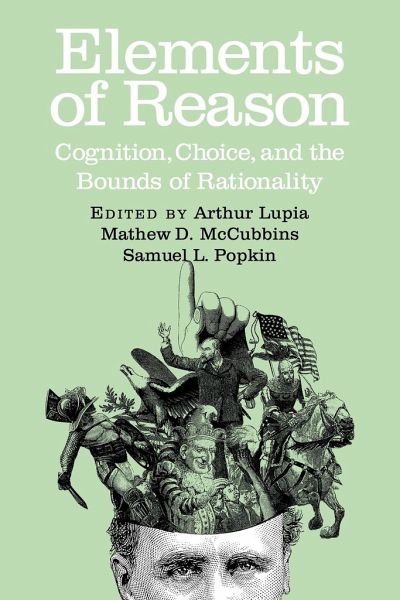
Elements of Reason
Cognition, Choice, and the Bounds of Rationality
Herausgeber: Lupia, Arthur; Popkin, Samuel L.; McCubbins, Mathew D.
Versandkostenfrei!
Versandfertig in 1-2 Wochen
40,99 €
inkl. MwSt.

PAYBACK Punkte
20 °P sammeln!
Advances in the social sciences are used to uncover cognitive foundations of social decision making.




